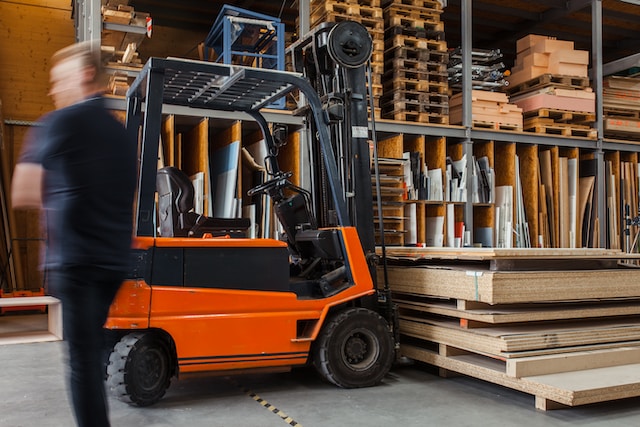Key Factors to Consider When Selecting a Forklift Battery Provider
Forklifts are a critical tool to keep production running efficiently in facilities. But to do that, they need dependable batteries in them. Today, two primary types of motive power batteries are lead-acid and lithium.
Both have their advantages and disadvantages. Some things to consider when choosing the correct battery include its size, voltage, charging time, maintenance requirements, and warranty coverage.
Contents
Cost
There are a variety of factors that go into selecting the correct battery type and model for your specific material handling operations. These include Ah capacity, chemistry, charging speed, cycle life, and brand. However, the most crucial factor is how closely the battery fits your needs and operational requirements.
A battery is a cell of negative and positive electrodes separated by a separator. A separator is usually made of non-conductive plastic or glass. The negative electrode, sponge lead, provides electrons to the external circuit during discharge. The positive electrode, made of lead dioxide, receives electrons during discharge.
Compared to traditional lead-acid batteries, lithium forklift batteries require less maintenance. Lithium batteries need not be watered, cleaned after occasional acid spills, or equalized (applying special charging mode to balance cells charge) regularly. This saves both labor and outside service costs. The battery also lasts longer, reducing your total cost of ownership over the battery’s lifetime.
Another factor to consider is how long your operations can tolerate downtime while the battery charges. Some charging options take up to eight hours, which may be an issue for businesses with shorter operating hours. Choosing a fast or opportunity charger helps you minimize downtime and maximize productivity.
Warranty
The quality of the batteries you purchase will have a direct impact on the productivity of your operation. As such, you need to be confident that the manufacturer offers a warranty in case of battery or equipment problems. A solid warranty can help you save money and time and protect your investment.
The forklift battery type you select will impact the performance and longevity of your industrial forklifts. Some varieties are less expensive than others, but each has different maintenance requirements and capabilities. The battery type you choose should reflect your needs and budget.
Lead acid batteries are the most popular power option for forklifts. They consist of a battery case, cables, and cells that contain water and sulfuric acid. They require regular maintenance, including distilled water, to ensure proper electrolyte levels. This process is a safety hazard, as the acid can cause spills and fumes.
Lithium-ion batteries are an alternative to traditional lead-acid batteries. They have a longer lifespan and offer a more energy-efficient operation. They also don’t have the same issues with corrosion or sulfating and do not need to be charged in a specially ventilated room. These benefits make them a better choice for busy operations that need to run shifts around the clock. Your battery supplier should be able to recommend a suitable lithium-ion forklift battery for your specific application.
Service
The type of battery you use to power your electric forklift is one of the main factors that determine how productive your material handling equipment will be. This is why choosing the right forklift battery provider is essential, with the expertise needed to help you select the correct forklift battery for your business and the appropriate services and support that go with it.
For example, wet cell lead-acid batteries contain charged plates suspended in a mixture of sulfuric acid and water that generates electricity through the chemical process within each battery. These batteries require regular maintenance to ensure they perform optimally. This includes a specialized system that adds clean water to each battery to equalize electrolyte levels and a trained employee with extra safety equipment who can open and close the lid on the battery. Additionally, these batteries take up a lot of indoor space that can be used for other revenue-generating operations, and they must be removed from the forklift at the end of each shift so they can be recharged.
Lithium batteries, on the other hand, are smaller, more energy dense, and can operate for up to twice as long per charge as their lead-acid counterparts. They also feature a flat discharge curve allowing them to provide more power for extended periods, even when nearly fully charged. Lithium-ion forklift batteries are also more environmentally friendly since they can be recycled. Many reputable battery suppliers have established recycling programs to help you properly dispose of spent batteries.
Reputation
The forklift battery is one of the main parts of electric material handling equipment and can significantly impact productivity. Choosing the correct forklift battery is a combination of factors, including Ah capacity, chemistry, charging speed, cycle life, and brand. Selecting a battery that meets your operation’s needs and provides a high return on investment is essential.
It is essential to check a forklift battery provider’s reputation before purchasing a battery. It would help if you looked at how long they’ve been in business and their experience with battery products. It would help if you also considered their product range, whether they offer flooded lead-acid batteries, lithium-ion batteries, or both.
The type of battery you choose depends on your operations and the size of the forklift. Lead-acid batteries are generally the cheapest but require frequent recharging and maintenance. Lithium-ion batteries are more expensive but have a longer lifespan and require less maintenance.
When selecting a forklift battery, you should also consider the compatibility with your current chargers. Most traditional battery chargers do not work with lithium-ion batteries, so you may need to upgrade your charging system if you switch to this battery type. You should also ask a forklift battery provider about their warranty, which will give you peace of mind if your new battery malfunctions.

